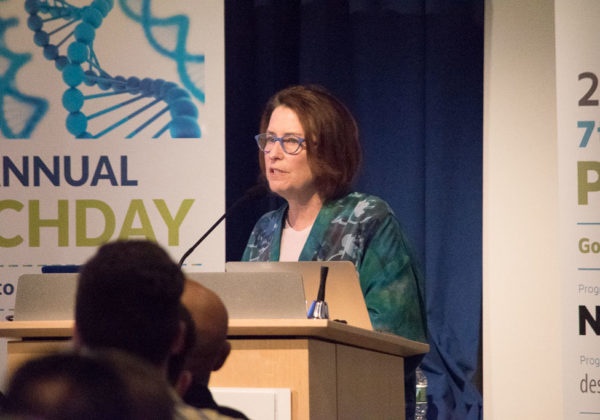
The Acceleration for Biosciences in Connecticut (ABCT) ”” a competitive-entry program that provides emerging bioscience ventures with entrepreneurship education and business networking opportunities ”” was the subject of a recent introductory webinar co-hosted by Fairfield University”™s School of Engineering and Inventors Association of Connecticut.
ABCT is run by Design Technologies LLC on behalf of CTNext, a subsidiary of Connecticut Innovations, the state”™s venture capital agency. Mary Howard, ABCT”™s program manager, defined the program as consisting of five phases.
For the 2021-22 program, the initial phase occurred last July through October when applicant companies and entrepreneurs submitted their inquiries for consideration. The second phase involved external screening and reference calls during October and November, followed by final interviews and the announcement of program participants in December.
“Each application is matched to a scientist reviewer, to an investor- reviewer in the area of the innovation, and finally to a strategy person,” Howard said. “Following that, there are reference calls to three personal references that each applicant provides.”
The third phase will begin in January 2022 with a six-day boot camp for program participants, followed by coaching and workshops that run from February through May. The fourth phase encompasses mentoring and networking roundtables plus a “Pitch Day” in May, and the program concludes in June with what Howard described as a “debrief.”
“When we do the debrief, we ask all the participants what are the top reasons that you would recommend the ABCT program to a friend or to a colleague,” she said, adding that the most popular answer has traditionally been the program”™s networking opportunities.
Howard stressed the program is designed to assist entrepreneurs grow a business, but it stops short of investing in the participants”™ initiatives.
“This is a program that doesn’t provide funding to participants,” she stated. “It teaches people how to prepare for growing their company, how to build a strategy and build a business plan that might require people to raise some money.”
Howard added that it “takes a lot of work to get to the place where a seed investor or an angel investor might decide to put some money into” a venture, which makes the ABCT program important in preparing the entrepreneur in seeking funds. She highlighted that the program already has a track record for success.
“In the fourth year we just finished a couple of months ago, just under $50 million has been raised by 38 ventures,” she said, noting many participants start with small-sum goals before building up to seven- or eight-digit financing.
“When they’ve come through the program, they might win a business plan competition grant for $15,000 or they might work really hard to get a special award from a federal government for $100,000,” Howard said. “But the challenge is, you have to get these first amounts of money to go on to get some others. When you hear about people who are raising $1 million or $5 million or $20 million, there’s a lot that’s come up before they’ve gotten to that place.”
Howard”™s presentation included input from Larry Dubois, founder and CEO of Nanoionix LLC, a developer of ceramic materials headquartered on the University of Connecticut”™s Farmington campus. Dubois started his company in January 2020 with a focus on the batteries industries, but found himself in limbo when the Covid-19 pandemic took root two months later.
“We sort of scratched our heads going, ”˜Okay, what do we do now?”™” he said. “And we pivoted big time with the realization that our technology not only has some interesting applications in batteries, but a variant of that technology actually has antimicrobial properties.”
Dubois laughed that he had limited knowledge of science ”” “The last biology class I took was in high school, and that was probably 50 years ago” ”” but a UConn professor offered initial mentoring before applying to the ABCT program because “we figured if we’re going to do anything biologically related, we need to do to learn a lot more.”
Shortly after joining the ABCT program, Dubois”™ company won its first federal Small Business Innovation Research grant and, as he put it, “we were kind of off and running.” He credited the ABCT with getting him up to speed and connected with the biosciences sector.
“It was a tremendous opportunity for us not only to learn about the application space, but having the right group of coaches, mentors and seminars and forcing us to think about what we were doing, why we were doing, how to go after what we were doing, how to talk to customers, etc.,” he said. “We learned a tremendous amount, not just by listening but also by doing, and Mary and her team have an amazing ability to connect participants with people who can really help.”
Before his time in the ABCT concluded, Dubois said his company signed a joint development agreement with a Fortune 200 company and received financial commitments from three different organizations.
“It’s been a wild and very successful ride for us,” he said. “I would highly recommend the ABCT program to anybody.”





















